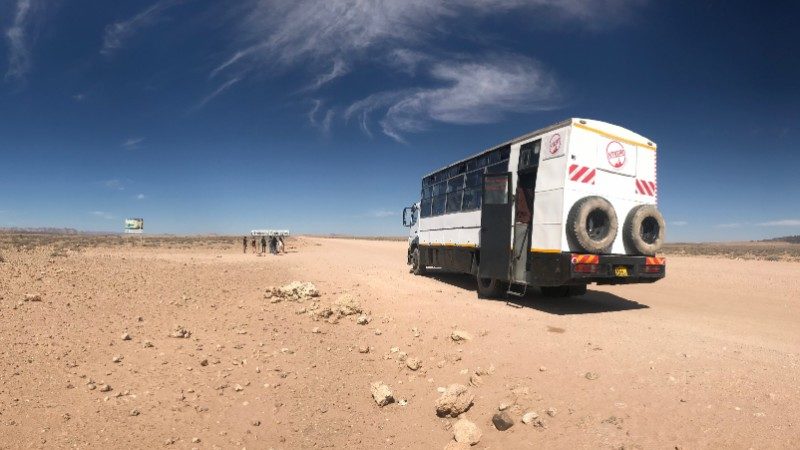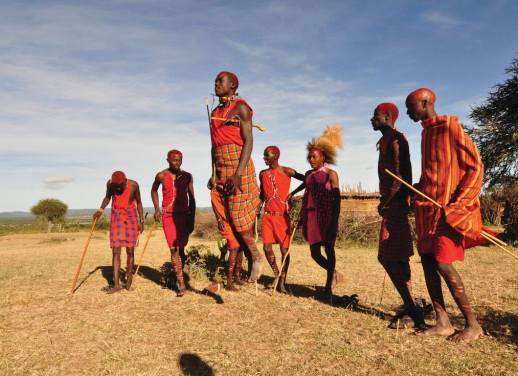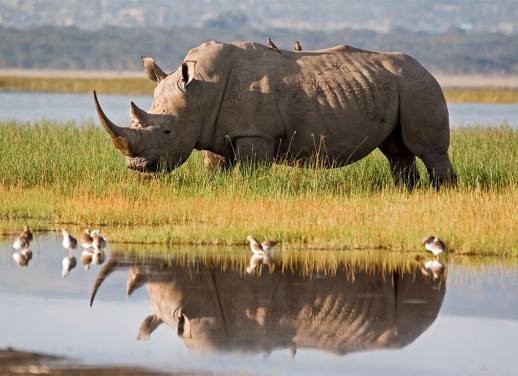Taking an overland tour is one of the most popular ways to travel around Africa, but just because someone else does the driving doesn’t mean it’s going to be easy.
With long days on the road, tents to put up (and take down) most days, and rapidly changing weather conditions to contend with, overlanding in Africa is much more of an adventure than a holiday. As an overlanding veteran, I guarantee these accessories will make your trip easier:
1. Camera cleaning kit
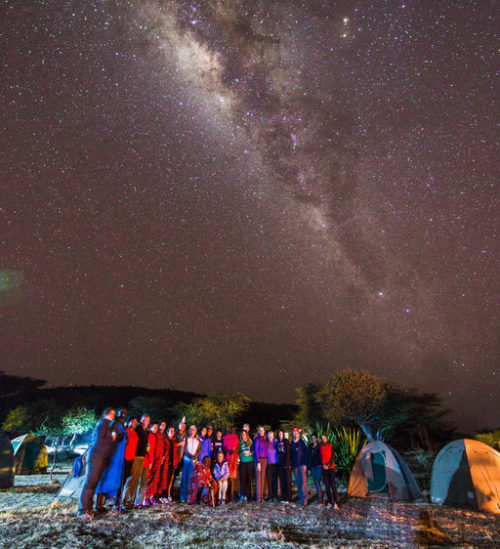
Photo by Damien Raggatt
No matter which Africa overland route you take, there will be dust. Lots of dust. And it gets everywhere. Keep your camera healthy by investing in a dust blower, lens cloth, lens cleaning fluid and plastic-free ear buds, and change your lenses indoors where possible. A tripod is essential if you want to capture some of Africa’s exquisite night skies, and a monopod can be handy for game drives.
TRAVEL ON AN OVERLAND TOUR AROUND AFRICA WITH INTREPID NOW
2. Eco-friendly toilet paper (and a zip-lock bag!)
A personal stash of toilet paper is a must for overland Africa trips, which include many ‘bush toilet’ stops. Recycled toilet paper is much kinder to the environment than wet wipes (which have wreaked so much havoc in the UK alone its government has vowed to ban them), but if you must use the latter, ensure they are biodegradable. Keep a zip-lock sandwich bag (or a sanitary bag from a hotel) in your pocket to store used paper until you can dispose of it properly. In drier areas of Africa, even toilet paper can take decades to break down.
3. Fully loaded devices
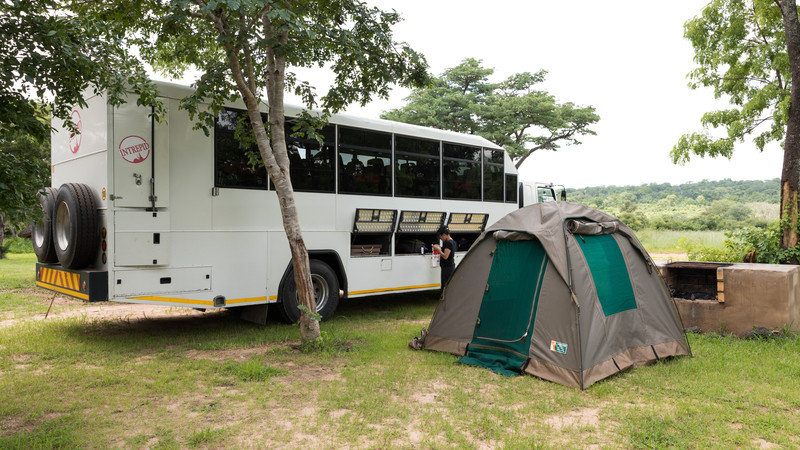
Photo by Allison McCarthy
Most Africa overland tour camps do not have wi-fi, data plans for local sim cards can be expensive (and difficult to set up), and portable wi-fi routers don’t work in a lot of countries. Avoid boredom on the long drives by loading up your device of choice with tunes, podcasts, Netflix series’ and e-books before you go. A noise-cancelling app can also come in handy if you’re sharing a tent with a snorer. For those who prefer regular books, be aware that book-swaps are difficult to come by in overland campsites these days.
RELATED: WHY ZAMBIA MIGHT BE AFRICA’S MOST UNDERRATED SAFARI DESTINATION
4. Self-inflating sleeping mat
Sleeping mats are provided on Intrepid’s Africa overland tours, but if you have a bad back, like to sleep on your side, or simply prefer a bit of extra padding, you might want to consider investing in a good-quality sleeping mat (a self-inflating version will make your life easier). Lay it on top of the supplied mat for extra comfort, and don’t forget to bring a pillow – there are some great inflatable options available these days.
5. Cold-weather gear
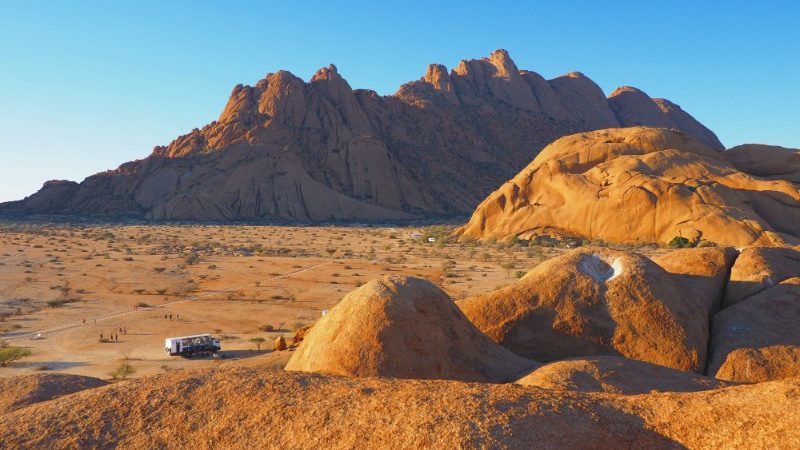
Photo by Sarah Reid
Africa conjures up images of hot and dusty plains, but it can get really cold in some places. The whole country of Lesotho, for example, sits above 1000 metres, and zooming through game parks anywhere in an open-sided vehicle can chill you to the bone. Be prepared by packing warm clothes, a beanie, a buff, and a good quality sleeping bag. My Kathmandu sleeping bag has a ‘comfort level’ of -9°C, which was perfect for my last trip from Zanzibar to Cape Town during winter.
6. Hand sanitiser and cold and flu medication
Sharing an overland Africa vehicle with around 20 other travellers is the perfect environment for sharing germs. Keep bugs at bay by making hand sanitiser your best friend, and keep some cold and flu meds on-hand. You might also want to consider packing some probiotics and/or vitamins to help boost your immunity, as these aren’t always easy to find at pharmacies along the way.
7. Power pack
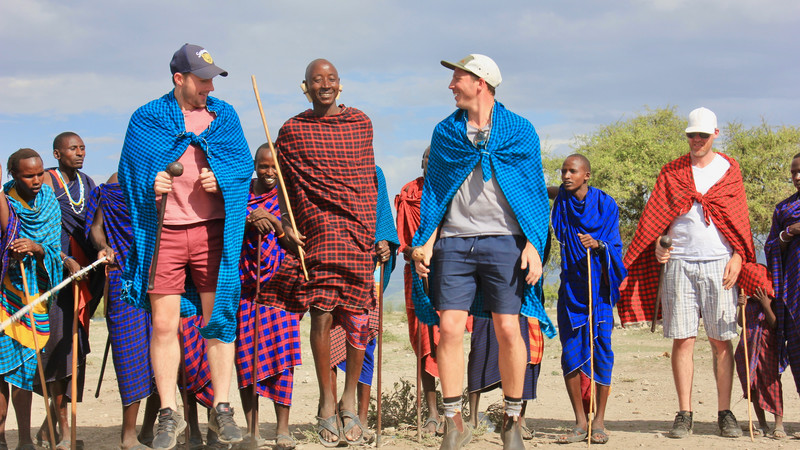
Photo by David Nagle
Most overland vehicles are fitted with power sockets, but these can typically only be used when the truck is running. Avoid being caught out at night or on an activity by bringing a rechargeable power pack to juice your devices on the go. Bonus points for staying off the grid by opting for a solar-powered power pack.
SUBSCRIBE TO INTREPID’S NEWSLETTER FOR TRAVEL TIPS, COMPETITIONS, GIVEAWAYS & MORE
8. Water filtration device
All good overland tour providers (including Intrepid) provide clean drinking water, but the taste can be a little harsh due to the water purification tablets used to purify the local tap water. If you’re not a fan of the taste, consider investing in a reusable drink bottle with an inbuilt filtration device that removes the taste of the chemicals (I’m a big fan of the Grayl bottle). You can also use water enhancers to mask the taste, though be aware many brands contain additives like caffeine.
9. Reusable and rechargeable everything
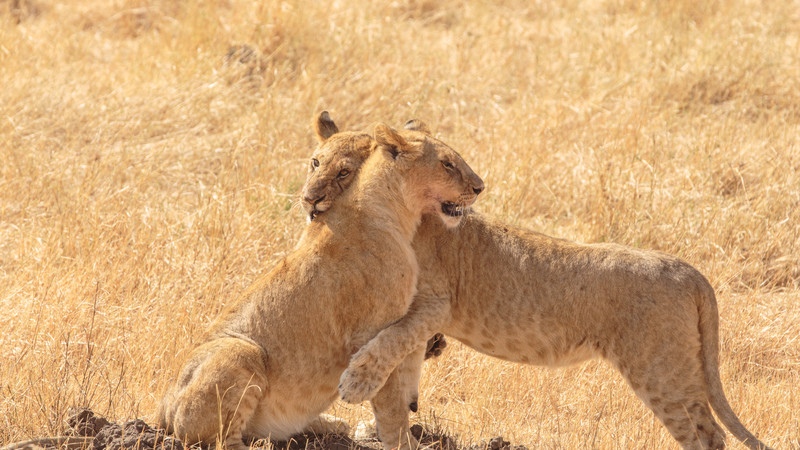
Photo by Damien Raggatt
Any batteries you can avoid using on your trip is a win for the environment. Consider investing in a USB-rechargeable head torch, and perhaps a solar light to hang in your tent. Reusable cutlery will come in handy when you visit street food markets, and a reusable coffee cup will be useful if you’re planning to spend any time in South Africa, which has a good coffee scene. A reusable drink bottle is an absolute essential, and Intrepid supplies reusable carry bags on all their overland trips to help you avoid using plastic bags.
RELATED: WHAT IT’S LIKE TO SAFARI IN THE NGORONGORO CRATER
10. Portable clothesline
If you don’t fancy paying the standard rate of around US$10 per bag to have your laundry done for you along the way, bring your own supplies. I travel with a Scrubba bag, which is like a little portable washing machine that packs down to nothing. A portable clothesline is also convenient for airing out your towel on the bus and in the campground.
Ready to start exploring Africa? Check out our range of overland adventures now.
Feature image by Sarah Reid.

